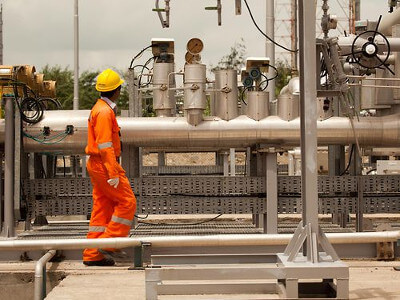Also presenting will be Emerson’s Sergio Pasquali. His presentation, New Technologies Drive Operational Performance by Connecting Smart Stations to Distribution Networks, will be on Friday, June 29 at 1pm. Sergio collaborated on the paper for this presentation with Emerson’s Dave Macedonia, Aurélien Tissot and Rossella Mimmi.
They open their abstract noting:
Natural Gas distribution companies have been historically slow to adopt new technologies, especially so-called “smart” technologies, in their networks. Their counterparts in electric utilities, process plants, and even gas transmission have widely adopted connected components and solutions to quickly give them access to data to make decisions, improve the safety of their systems, and provide them with the functionality they need to improve their operations. Recently, the natural gas distribution segment has begun to catch up by adopting these types of technologies to enjoy similar results. Solution providers in the industry have developed customized systems for customers and, when coupled with a digital ecosystem, they can drive substantial value for gas utility companies.
Opportunities for improved operational performance include:
…1) Safety, 2) Costs 3) Reliability, 4) Efficiency, and 5) Emissions. These five areas are what drive their decision-making and operational plans, which in turn contribute to strategic priorities. To improve in these areas, they must find a solutions partner who can best serve their needs. The use of innovative interconnected solutions throughout the natural gas value chain, specifically in distribution, can allow these companies to drive operational improvements, maintain optimal uptime, more effectively deploy resources, and enhance system safety for key stakeholders.
 Incorporating digital technologies creates smart gas systems, which:
Incorporating digital technologies creates smart gas systems, which:
…consist of a central unit that receives system parameters (temperature, pressure, flow), processes that information, controls pressure management equipment, and interfaces with control loops. It could be used at an individual station or for multiple pressure reducing and metering points across the distribution grid. An interface can control various components such as solenoid valves, pressure transducers and temperature sensors. Communication with existing networks is also vitally important for the success of any system upgrade. Local and remote communication capabilities (webserver, USB, Ethernet, GPRS, etc.) and the possibility to interface with existing supervisory control and data acquisition (SCADA) system (through MODBUS, TCP/UIP Protocols) are desirable features of equipment in such networks.
If you’re not able to be at the World Gas Conference to see Sergio’s presentation, make sure to connect with these technology and industry experts at the October 1-5, 2018 Emerson Exchange conference in San Antonio, Texas. You can also connect and interact in the Oil & Gas group in the Emerson Exchange 365 community.





